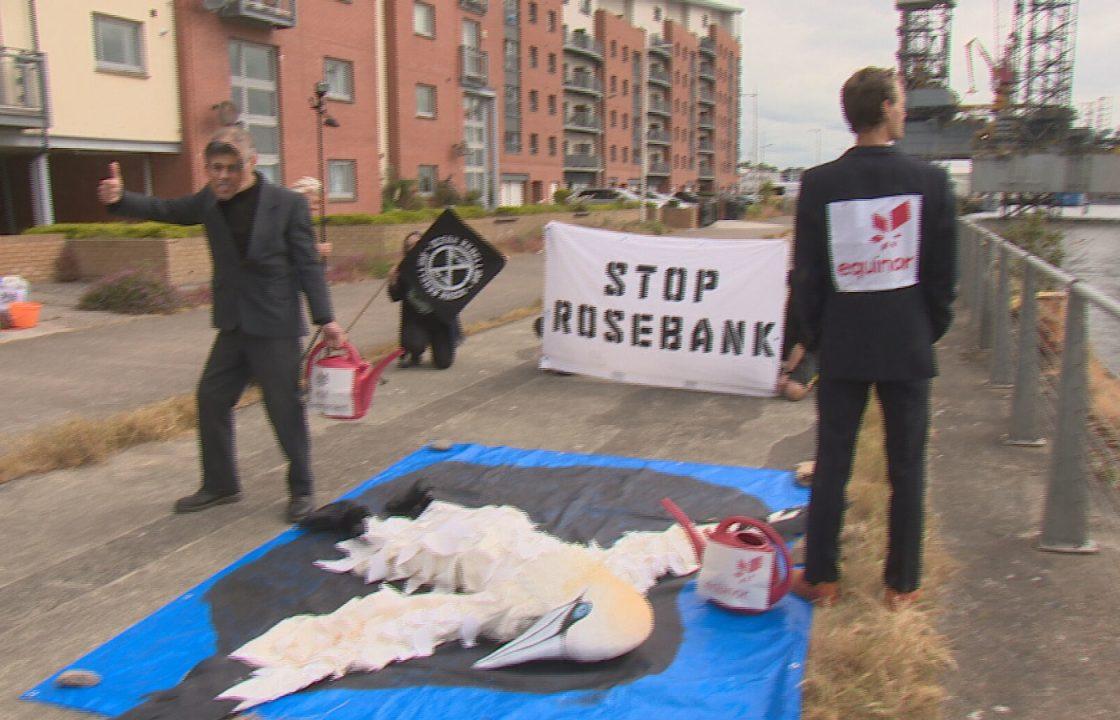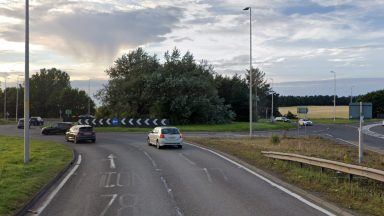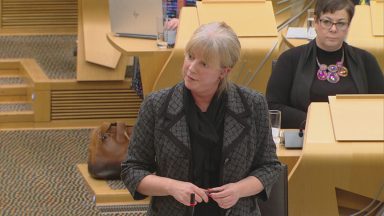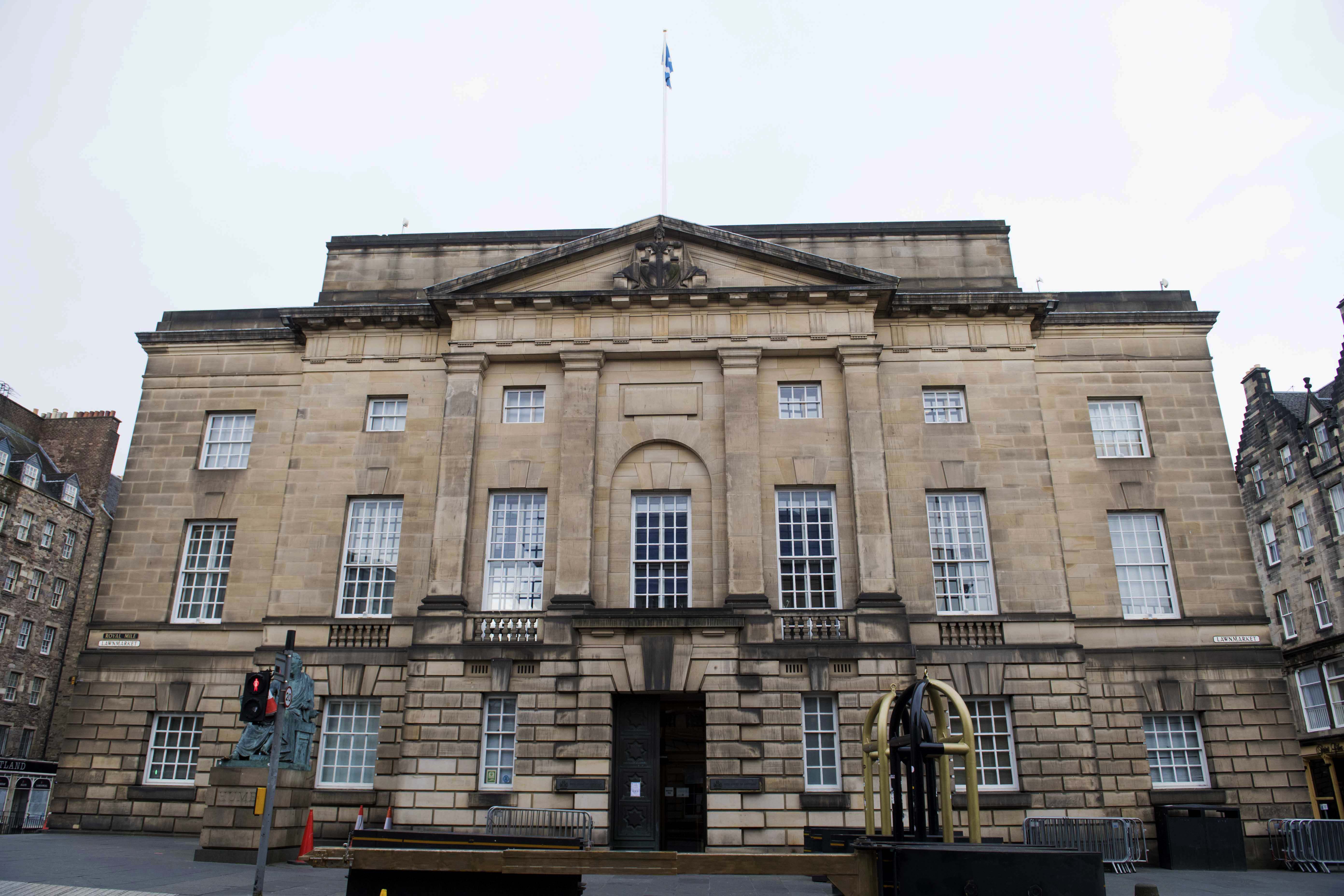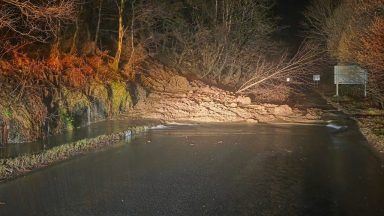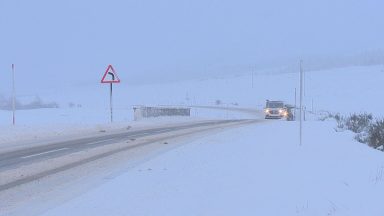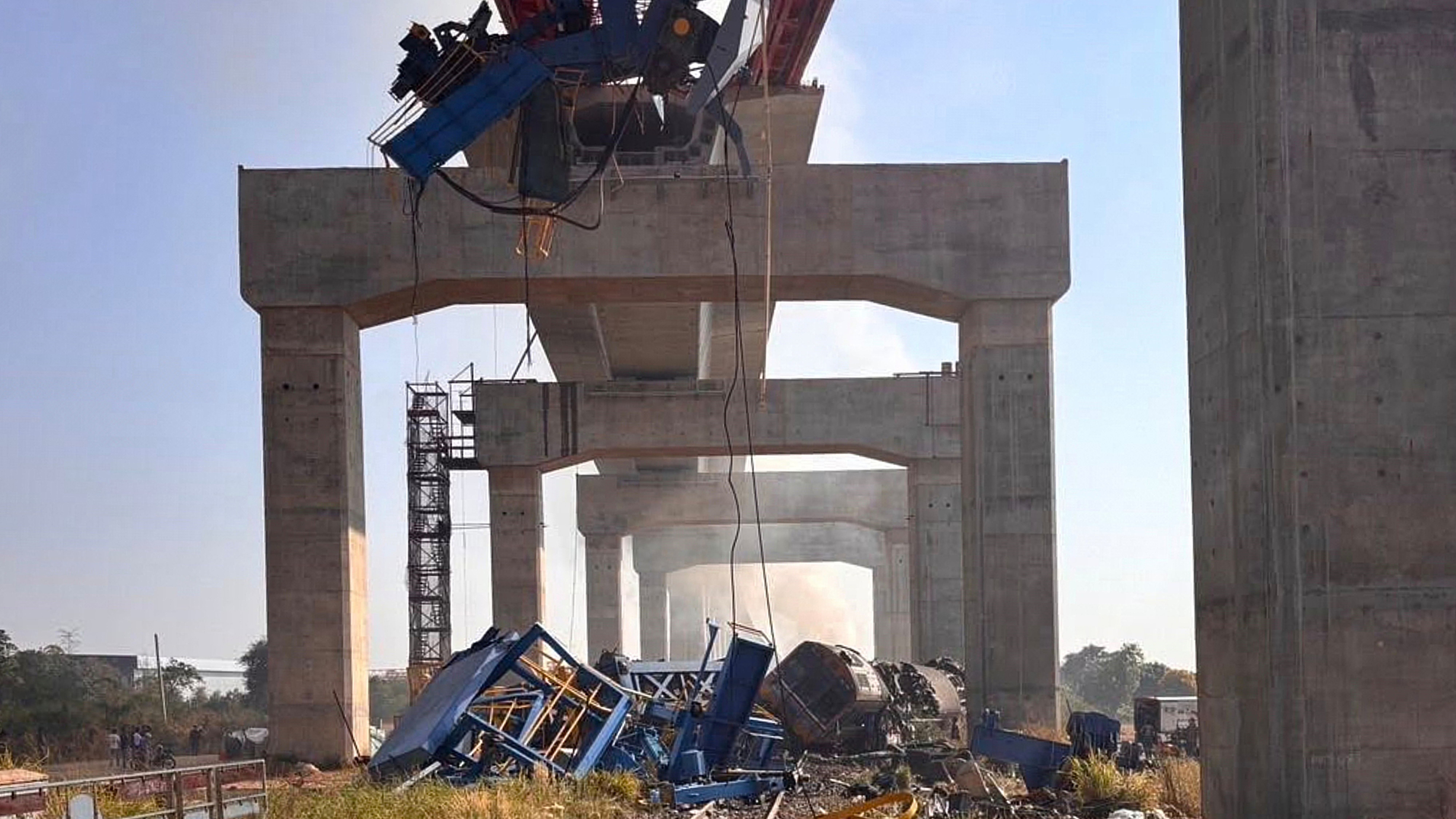Environmental campaigners have displayed a “human-sized oil smeared gannet” on the banks of the River Tay in a protest against the government’s decision to licence the controversial Rosebank oil field.
Two protesters from Ocean Rebellion, one wearing a mask of Prime Minister Rishi Sunak, and the other wearing a blazer with oil and gas company Equinor’s logo on the back demonstrated next to an oil rig in Dundee by “sloshing more oil on to the bird”.
Behind them, others held ‘Stop Rosebank’ banners.
If approved, Rosebank, one of the largest oil fields in the North Atlantic which lies west of the Shetland Islands, could produce more than 70,000 barrels of oil every day at its peak under proposals by Norwegian state-controlled company Equinor.
Equinor expects a final investment decision to be made in 2023, with the first oil expected in late 2026.
Ocean Rebellion’s Mandy Cairns said: “Equinor state on their website that their environmental work is guided by their commitments to prevent harm to the environment, and yet they intend to develop an oil field which would involve a pipeline cutting through the Faroe-Shetland sponge belt, which is home to sensitive deep sea sponges and 400-year-old clams.
“A major oil spill from Rosebank could risk serious impact to at least 16 Marine Protected Areas.”
Dr Kate Treharne, zoologist at Ocean Rebellion said: “The In Deep Water report from Oceana and Uplift reveals that marine life in UK waters are constantly subjected to small but routine oil spills. Satellite images of UK waters from 2020-2022, obtained by an NGO SkyTruth show oil slicks as long as 10km. With a million seabirds calling Shetland home, an oil spill from this field would be catastrophic to the animals and birds who live and feed in this area”.
Bridget Cooper from Ocean Rebellion added: “All aspects of Rosebank will devastate marine wildlife. Seafloor pipelines for Rosebank will cut through and damage the delicate Faroe-Shetland Sponge Belt. In general, locating new oil reserves requires seismic airgun blasting sometimes for as much as every ten seconds, 24 hours a day for weeks at a time.
“Noise pollution can travel hundreds of miles through water, often so loudly that it disorientates, injures or kills whales, dolphins and porpoises.”
Speaking to reporters at the Innovation Zero Congress in London on May 25, Graham Stuart, minister for climate and net zero, said the government is committed to new oil and gas licences in the North Sea but would not say when a decision on Rosebank is likely to be made.
He said: “I can’t comment on a specific project.
“What I can say is that we’re committed to new oil and gas licences in the North Sea.
“We firmly believe that producing our own oil and gas as net importers, and will continue to be even as demand drops, is the right thing to do.
“Otherwise we’ll be spending tens of billions, if not more, on foreign-produced fossil fuels, often with lower standards of production than will happen at home.
“We would never licence oil and gas development in the UK that wasn’t compatible with net zero and 1.5C.”
Follow STV News on WhatsApp
Scan the QR code on your mobile device for all the latest news from around the country


